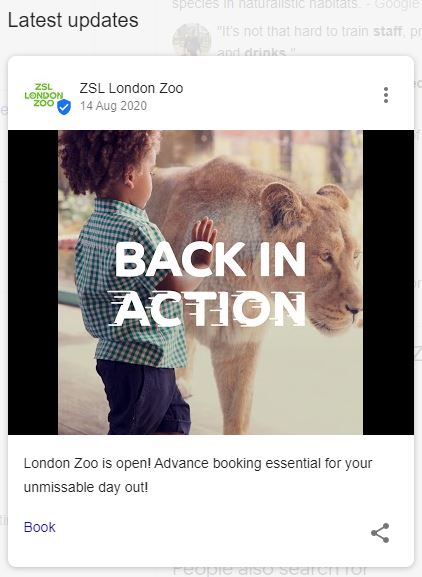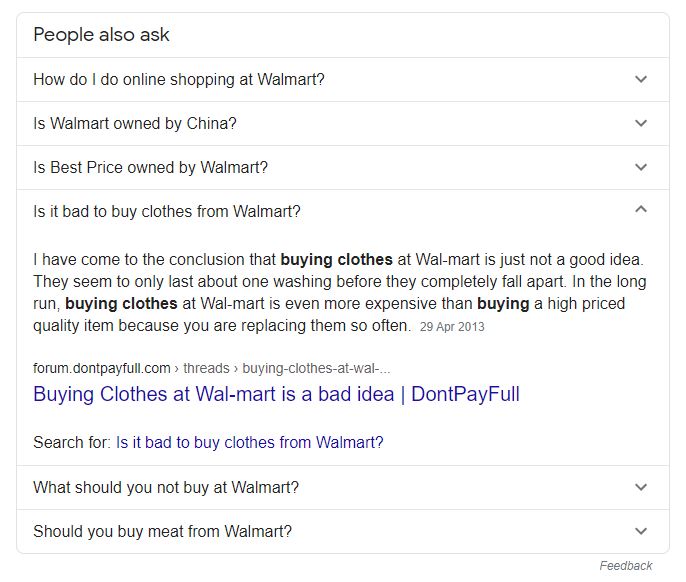All forms of marketing play a part in good brand management.
Using the same tone of voice throughout your ads and emails, and choosing the same photo assets for your website as your billboards, contribute to the picture that is painted when a customer considers your product or service.
Sometimes, however, your brand might be in receipt of some negative press or reviews that can alter the way it is seen.
If a potential customer wants to know if your business is reputable they will likely search for you online.
Visiting your website isn’t enough and they’ll want more objective feedback.
So, online reputation management is critical.
It is the process of shaping and controlling the narrative around your brand online.
SEO is an important step to consider in that process.
Why Is Online Reputation Management Important?
Research into a brand, product, or service often begins online with a search.
Your website is likely to only be one or two of the results brought up when someone searches for your brand.
All those other search results will potentially be saying something about your brand that might not be as favorable as you would like.
For Corporate Brands
Negative reviews happen.
Unfavorable comparisons about your product and a competitor can be made by an objective third party.
Bad press can be high ranking.
If you aren’t actively monitoring what appears at the top of the search results for your branded keywords then you could be missing out on the opportunity to spot potential reputation issues.
Once a news story starts circulating about your company, or even incorrect information is added to a third party website, it can be hard to repair the damage to your brand.
It is important that your brand’s message is what’s seen on the first page of the SERPs.
Proactively working on your online reputation management can put you in a strong position to correct misinformation or outrank unfavorable content.
Our Personal Brand
This all applies to your personal brand as well as your corporate one.
You need to make sure that the information available online paints a positive picture.
We’re all getting very good at portraying ourselves positively on social media.
Photoshopping images, curating our life highlights, and only sharing information that paints us in a positive light.
Employers and recruiters are increasingly visiting social media profiles when considering candidates for a job.
But what about when someone searches your name.
What comes up on the first page of the SERPs?
How to Carry Out SEO for Online Reputation Management
I’m not going to tell you how to get your website to rank for your brand term, just that you need to.
That can be particularly tricky if your brand name is a word that means something in your or another language.
It can be especially difficult if your brand name isn’t that unique.
You do want to be ranking as close to position one as possible for your brand name, however.
This way, the first result (excluding paid results) for your brand name is a property that you control.
That said, you want positions two, three, four, and five to be properties you own, too.
1. Control the Front Page
Wherever possible the first five or so top-ranking results for your brand should be controlled by you.
Your website, any other digital properties you host, and your social media pages.
If a potential customer is looking for information on your brand you want to be maintaining the information they read.
This means taking advantage of the prominent social media sites in your region.
Set up a branded Facebook, LinkedIn, and Twitter profiles.
Social media sites are hugely authoritative and will rank highly for most branded search queries.
Don’t just settle for a social media presence though.
Set your company up with a profile on review sites, industry comparison sites.
Essentially, any property outside of your direct ownership that you can still have some say over the content of.
2. Be Active on Social Media & Review Sites
Setting yourself up on social media and review sites does come with risk.
People will comment, reviews will be left.
They will not all be favorable.
However, even if you do not have an official Twitter handle or a company created Glassdoor page doesn’t mean competitors or disgruntled employees won’t be talking about your company anyway.
You might just have less visibility of it.
Make sure you are responding to comments, positive and negative.
A negative Twitter comment might well be returned in a Google search for your brand.
Keep your company active on social media and review sites both to address any negative comments but also to keep them off the front page of Google.
3. Set up a Google My Business Listing
This is another area of the branded search results you can own.
Your Google My Business listing could well be the first result a user sees when searching for your brand.
Around festive holidays, or even during the COVID-19 restrictions, your opening hours or availability of your office might change.
Google My Business is the perfect place to keep that information updated.
If you don’t have a Google My Business listing then a search for “[your brand] opening hours” might pull information from a website that hasn’t been updated.
Google Posts
Another benefit to a Google My Business profile for reputation management is Google Posts.
Posts are small snippets of content that will appear directly on your Google My Business listing.

They allow your brand to inject timely offers, articles, or updates straight into the Google search results without having to battle the ranking algorithm or waiting for indexing.
If you are in need of some reactive PR or want to promote something quickly, this is an effective way to do that.
Reviews
A Google My Business listing does bring with it the potential for reviews of your brand to appear at the top of the SERPs.
If a user leaves a review on your Google My Business profile there is little that can be done to remove it.
It would need to contravene Google’s review guidelines in some way and even then there is no guarantee it will be ruled by Google as such.
Good reputation management is about effectively dealing with negative attention as much as positive.
A negative review can be responded to on Google My Business giving your brand the opportunity to turn a negative experience into a positive one.
Questions & Answers
Google My Business also features a Q&A section where the public can submit questions to your profile.
The main issue with this is, the public can also answer those questions.
This is a good opportunity to understand what your target audience is interested in knowing but it is a very public way to find out.
It is crucial that you stay on top of any questions asked so you can ensure the answer is accurate.
There is nothing to stop a well-meaning (or ill-intending) member of the public from answering a question and it being wrong.
Ensure you are managing your online reputation well by keeping an eye on this corner of the SERPs.
4. Create Content Around Potentially Negative Keywords
Brand searches will often yield a series of People Also Asked (PAA) search prompts.
The PAA results are a goldmine of information for your reputation management keyword analysis.
These prompts can cause searches to consider questions about the brand they may never have asked.
For instance, based in the UK, I have little exposure or understanding of the brand Walmart.
However, searching the keyword “Walmart” produces these PAAs.

Prior to seeing this PAA, I would not have known that some people may consider it a bad idea to buy clothes from the brand.
I do now.
Not only is the question “is it bad to buy clothes from Walmart?” off-putting for someone who doesn’t know much about the store, the search result it features is even worse.
Other common PAAs that will appear for brand searches include “is [brand] legit?”, “is [brand] a scam?” and “can I cancel [brand] subscription?”
Your potential customer might not have any reason to consider your brand a scam, but seeing those questions that have been searched by others may raise that concern.
Check the PAAs that appear for your brand.
If they are even slightly negative you need to ensure you are ranking as the featured snippet for them to counter that notion.
5. Be Newsworthy for the Right Reasons
If you are trying to bury a high-ranking negative news article that is grounded in fact, many will have little sympathy for you.
Instead, work on being newsworthy for the right reasons.
Gain press about your charitable giving, your encouragement of local teams, or your work to protect the environment.
Focus on digital PR for PR’s sake, even if all you get is a brand mention.
If it is on a high authority website it might be enough to outrank review sites, comparison sites, and other more dangerous properties for your brand terms.
The key is stacking the front page with positive commentary of your brand beyond the properties you have direct control over.
Set up a Brand Alert
Using Google Alerts or other brand mention monitoring tools keep an eye out for when you’re mentioned online.
It may be that a journalist, or reviewer, will be amenable to hearing your side of a negative story.
It might simply be that your company opening hours have been misreported or other inaccuracies stated.
That alert could give you the opportunity to correct misinformation or damaging accusation before it is too widely read.
6. It’s Not All About Google
Don’t forget that there are other search engines aside from Google.
Make sure you are following these steps for those search engines too.
Set up a Bing Places listing and monitor the first page of DuckDuckGo for your brand phrases.
If there is the potential for your brand to be searched in a different search engine, it is critical that you are managing your reputation there.
More Resources:
- 7 Expert Tips to Protect Your Online Reputation
- 10 of the Best Tools to Monitor Your Online Reputation
- 7 Ways to Improve Your Brand Perception with Reputation Management
Image Credits
All screenshots taken by author, October 2020





![[SEO, PPC & Attribution] Unlocking The Power Of Offline Marketing In A Digital World](https://www.searchenginejournal.com/wp-content/uploads/2025/03/sidebar1x-534.png)